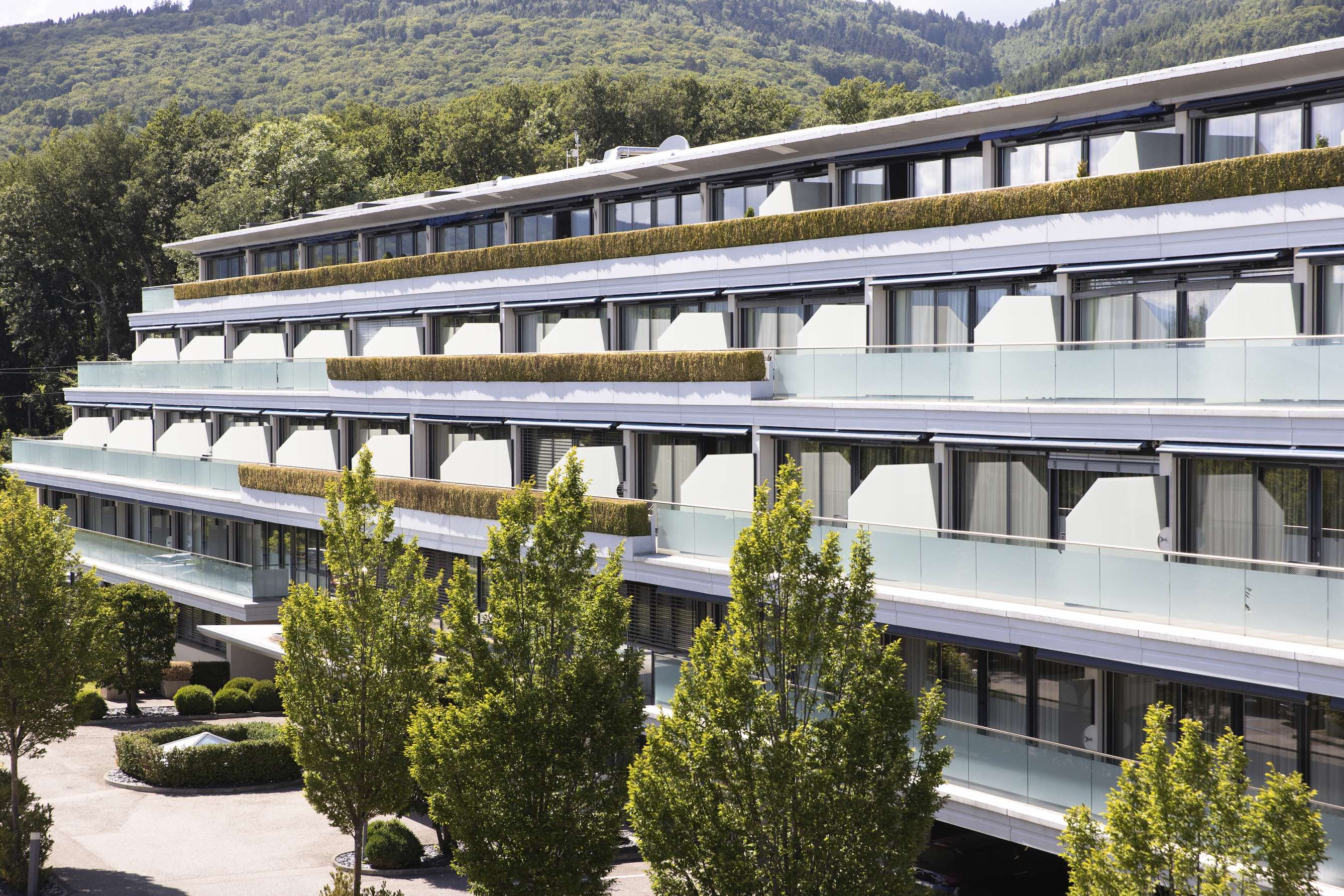Having just turned 65, I enjoyed a week of firsts. My first ever facial and my first ever yoga class progressed to my first ever impedancemetry session, my first ever photobiomodulation session, my first ever hyberbaric chamber session, my first ever cryotherapy session, my first ever sensory deprivation session, my first ever neurofeedback session and my first ever revitalising wave session.
I was at the Nescens Clinic Centre for Aesthetic and Regenerative Medicine near Geneva, marking my milestone birthday by attempting to defy age. It was Mrs Ray’s idea. Concerned that I was beginning to look and act like the old soak that I am, she wanted them to break my bad habits and help me shed ten years. So I signed up for the £10,000 ‘7-Day cure reset’ – and it proved to be a salutary experience.
The brainchild of the deliciously named Professor Jacques Proust, Nescens Clinic is a discreet establishment for the (very) well-heeled – in search of lost time, seeking not only to look young but also, according to Prof P, to stay young.
‘You can’t prevent physiological ageing, but you can prevent pathological ageing,’ he told me. ‘We consider ourselves immortal in our twenties and don’t learn the things we need to know to protect ourselves until things start to go wrong as we age. We can help. This isn’t a spa or wellness centre, it’s a medical clinic.’
There are several quick-fix treatments on offer such as Botox injections, fillers, peelings, lasers, intralipotherapy (no, nor me) and hair transplants. There are other, more serious – not to say controversial – treatments too, such as exosome therapy, platelet-rich plasma treatment, nanofat treatment and microfat treatment, whereby one’s own fat is ‘harvested’, processed, emulsified and injected back into the body where it will repair and help grow one’s skin, hair and nails while also smoothing out the wrinkles – apparently. I saw some before-and-after photos which, if genuine, showed remarkable improvements, far more natural and less alarming than the wide-eyed, wind-tunnel look of a facelift or the trout-pout of lip fillers.
‘I do magic!’ Dr Sophie Menkes, director of the clinic and the pioneer behind such treatments, told me. ‘One injection costs around £5,500 and will soon make facelifts a thing of the past. Our treatments are particularly effective for hair loss and for plumping up and restoring ladies’ intimate areas. I could even make your penis bigger and, yes, Mr Ray, better.’ I declined her kind offer.
Strikingly modern, the clinic, with its contemporary art, restaurant-like dining room and views of Lake Geneva, looks more like a fancy hotel than a quasi-hospital. Given the nature of the procedures, discretion is key. The patients who come here don’t want anyone to know. Only the other week an unnamed head of state block-booked the whole place and nobody breathed a word.
I wore an infrared mask, endured a -132°C cryotherapy chamber and sat on a sofa holding a flickering neon lightbulb. I still can’t quite remember quite how these were meant to help
Although I was assured it was busy, I never saw another patient. I was encouraged to stay in my (extremely comfortable) bedroom unless I was having a treatment, and the only people that I encountered were the white-coated doctors, nurses and practitioners – none of them Swiss, incidentally – all of them glowing with good health. Many come for the cosmetic surgery and stem cell treatments, but others come for tests and advice on the best strategies for keeping the damage of the passing years at bay.
I found it all quite chastening. My osteopathy session showed that I have splayed feet and poor posture; my infrared skin analysis showed my spots, wrinkles, lesions, moles, pores, broken blood vessels and bags under the eyes in ghastly detail, the wretched machine declaring that I have the skin of a 72-year-old.
My brain scan revealed that although I score highly on cognitive processing and attention skills, I process emotions too fast, am not good at completing tasks and can’t count (I knew that already). My brain is contaminated with stress and I’ve yet to learn how to breathe properly, which might help combat this.
I wore an infrared mask, lay in a pressurised capsule complete with oxygen mask, endured a temperature of -132°C for three minutes in a cryotherapy chamber and sat on a sofa, holding a flickering neon lightbulb in my hand. I still can’t quite remember quite how these were meant to help.
I did, though, learn that I should avoid gluten and dairy and concentrate on SMASH – salmon, mackerel, anchovies, sardines and herring; that if I drink at night I should exercise in the morning; that I should stand up straight and get fit. It was apparent to one and all that I have no muscle mass and that – more than anything else – will prove to be my downfall.
‘Muscle is the organ of longevity,’ Prof Proust explained. ‘The more muscles you have, that stronger you are and the longer you’ll live.’
I’ll drink to that.








Comments